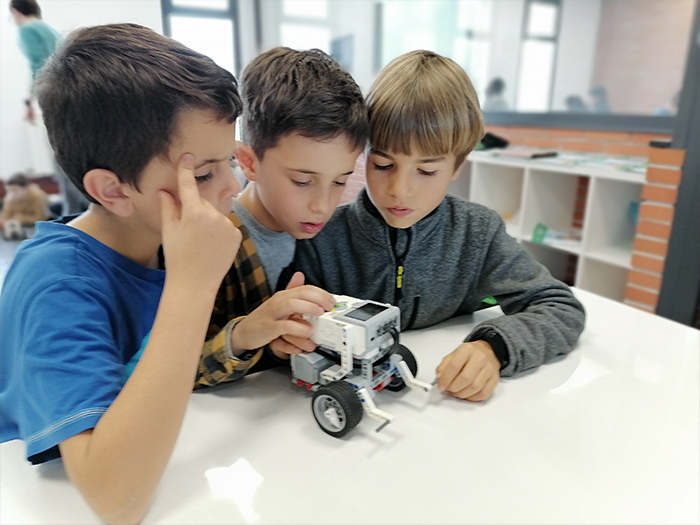0
You have 0 items in your cart
Compulsory Primary Education consists of six levels, which consolidate basic skills and also include working techniques for analysing reality and gaining a more rational, objective perspective on it. Increasingly difficult tasks are undertaken and the students begin to work in collaboration with others and become progressively more independent. This whole process takes in different situations and paces of learning, in accordance with personal differences, catering to the unique nature, independence and openness of each student.
The skills and tools are consciously used to autonomously research and analyse knowledge.
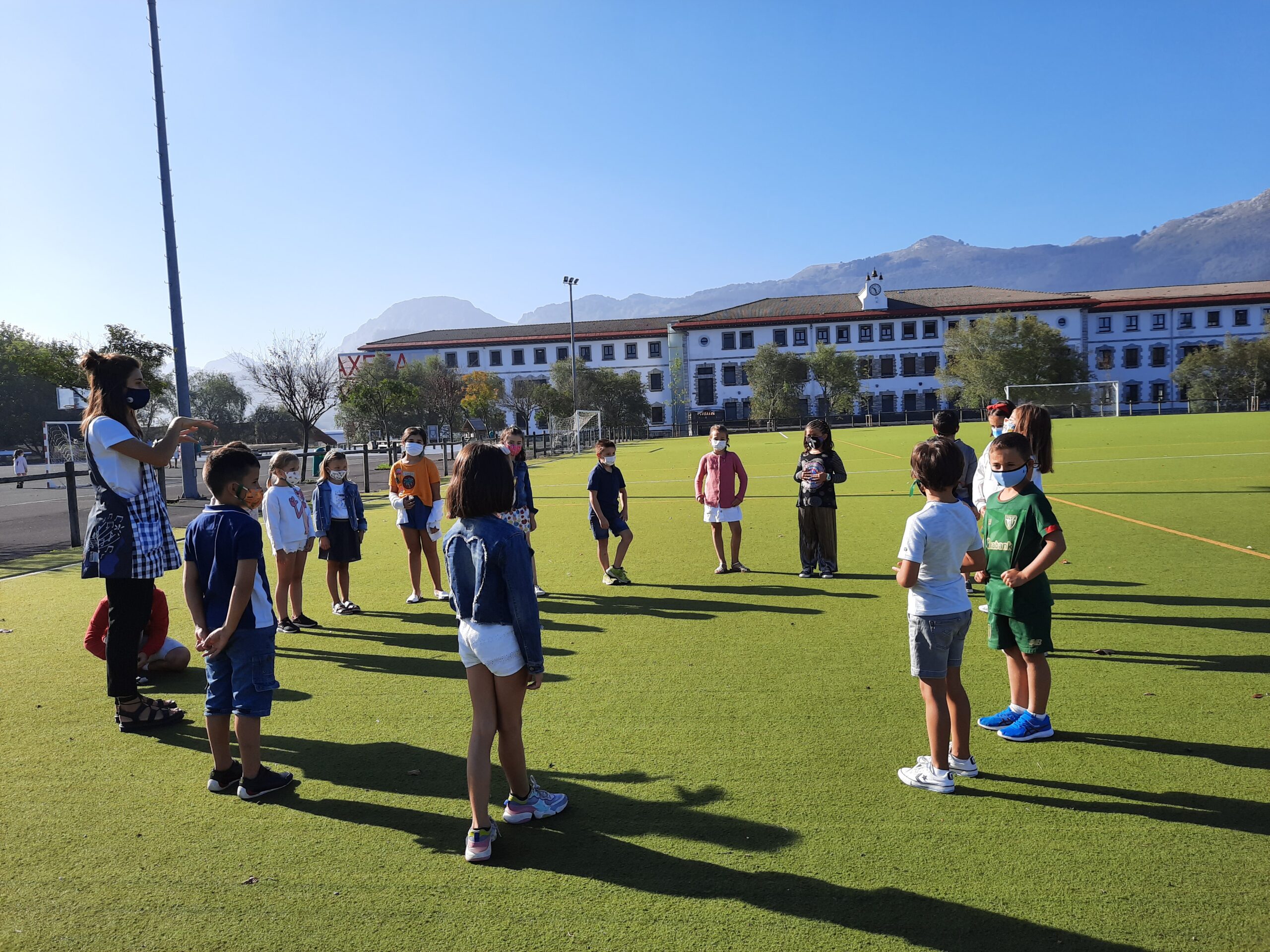
The aim of skills-based work is for the students to develop a series of skills that will allow them to take on their own personal challenges and enhance their capacity for happiness. The goal of skills-based learning is not merely «knowledge» but also «know-how». This knowledge is applied and can be adapted to different situations and contexts, giving our students the ability to cope in life. Conceptual content is still important in this approach, although it is a means for achieving it rather than an aim in itself.
Thinking is the key to the learning process. Thought processes are increasingly effective and will become more significant and enriching in all areas of learning, on both a personal and academic level. It is therefore essential that the students begin to acquire attitudes, habits, skills and strategies for effective analytical, critical, creative and metacognitive thinking in their early childhood.
Our aim is for the students to develop ethical, social and civic values and commitments from early childhood. In the weekly ethics and philosophy sessions, in addition to developing philosophical and critical thought they will also develop these values through:
Knowledge is more than just collecting and storing information: it is a deeper and more complex process based on meaningful learning. If the content learnt at the Ikastola is to be genuinely practical, functional and sustainable, it must be valid and transferable so that it can to be used to deal with real life situations. We therefore offer our students a variety of effective methodologies:
People develop skills by doing, and this must be trained. But not all types of training are valid. Learning by trial and error is more efficient, and it is also motivating and fun. Materials in different formats (manipulables, board games, apps, robots) are therefore made available to the students for them to learn certain skills in a fun, independent way.
Each student learns at their own pace and has their own capacities and needs, and the education process must therefore be tailored. The students have different options for deciding and consolidating individual paths of learning and development:
«There can be no learning without awareness of one’s own errors and areas of improvement». Each student is therefore given opportunities for developing strategies for oversight and assessment of their skills. By designing personal improvement plans they can self-regulate and initiate their own development. We use the most significant tools:
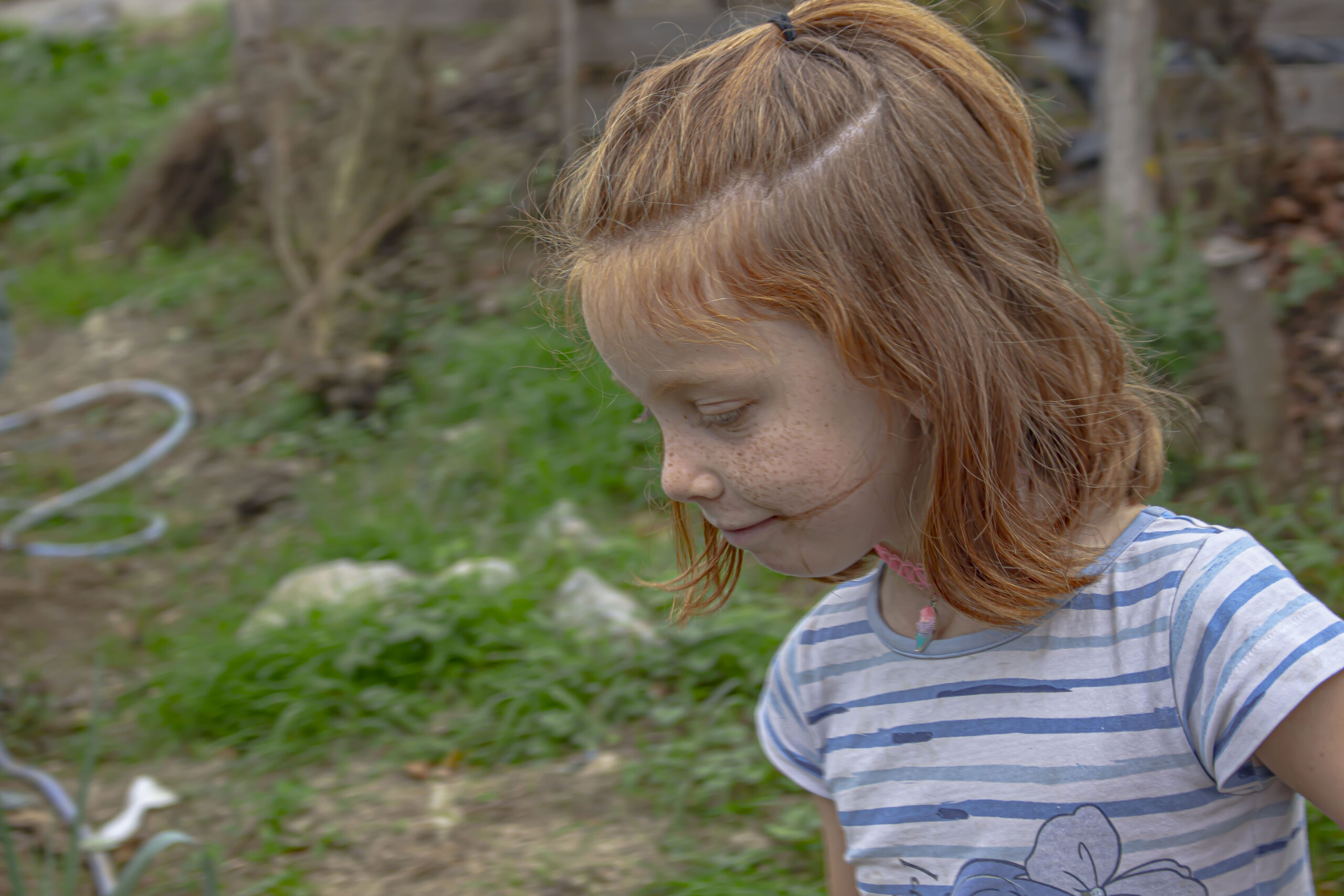
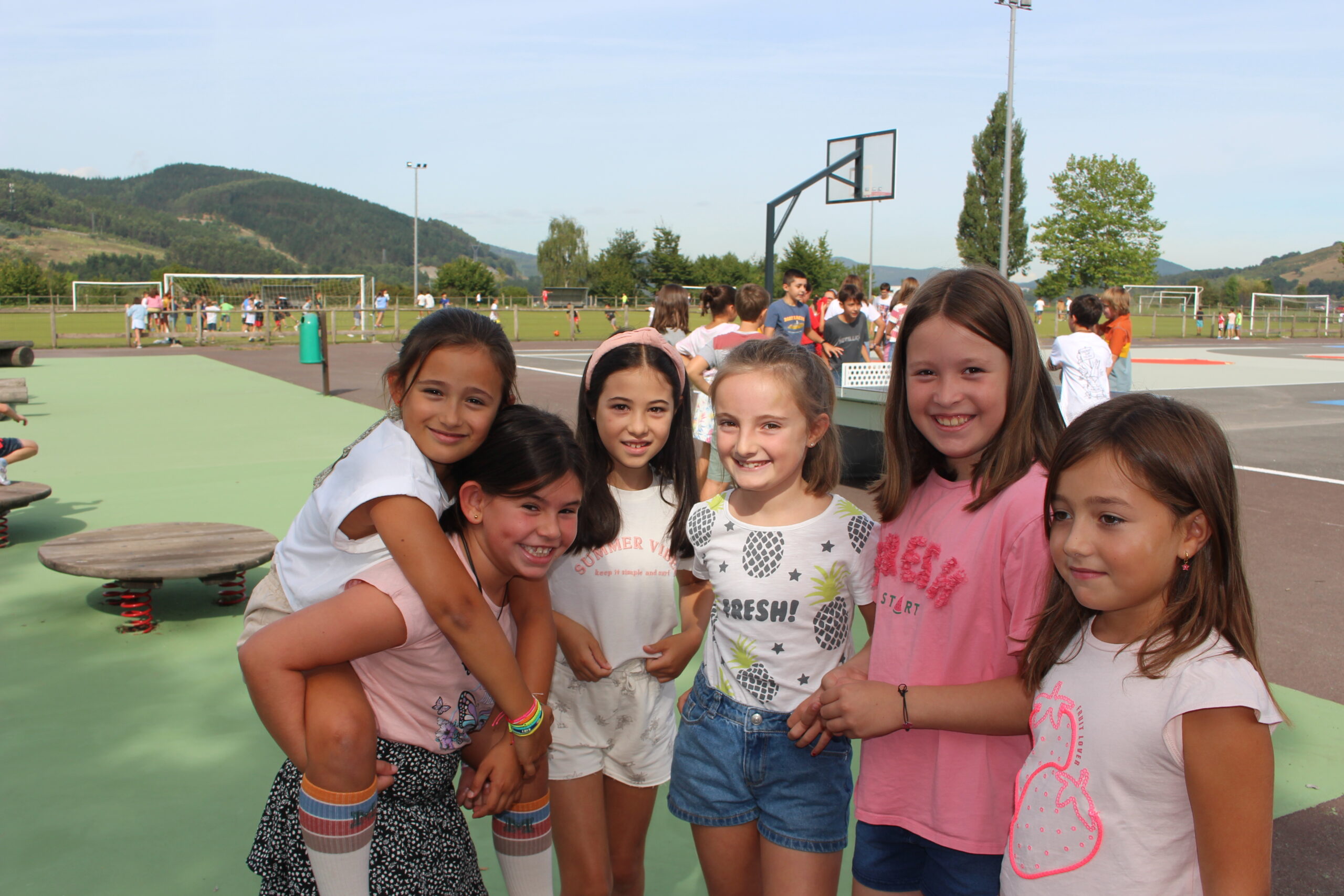
We are social beings, and interacting with the people around us is vital. However, the key is for this interaction to be genuinely respectful and productive. The students therefore develop skills for healthy, positive coexistence from an early age, through:
All the Lauaxeta Ikastola people form part of a community. So, from Primary education onwards, we give our students the chance to become actively involved in this community. The Students’ Committees are one of the Ikastola’s hallmarks and are essential to improving our daily coexistence:
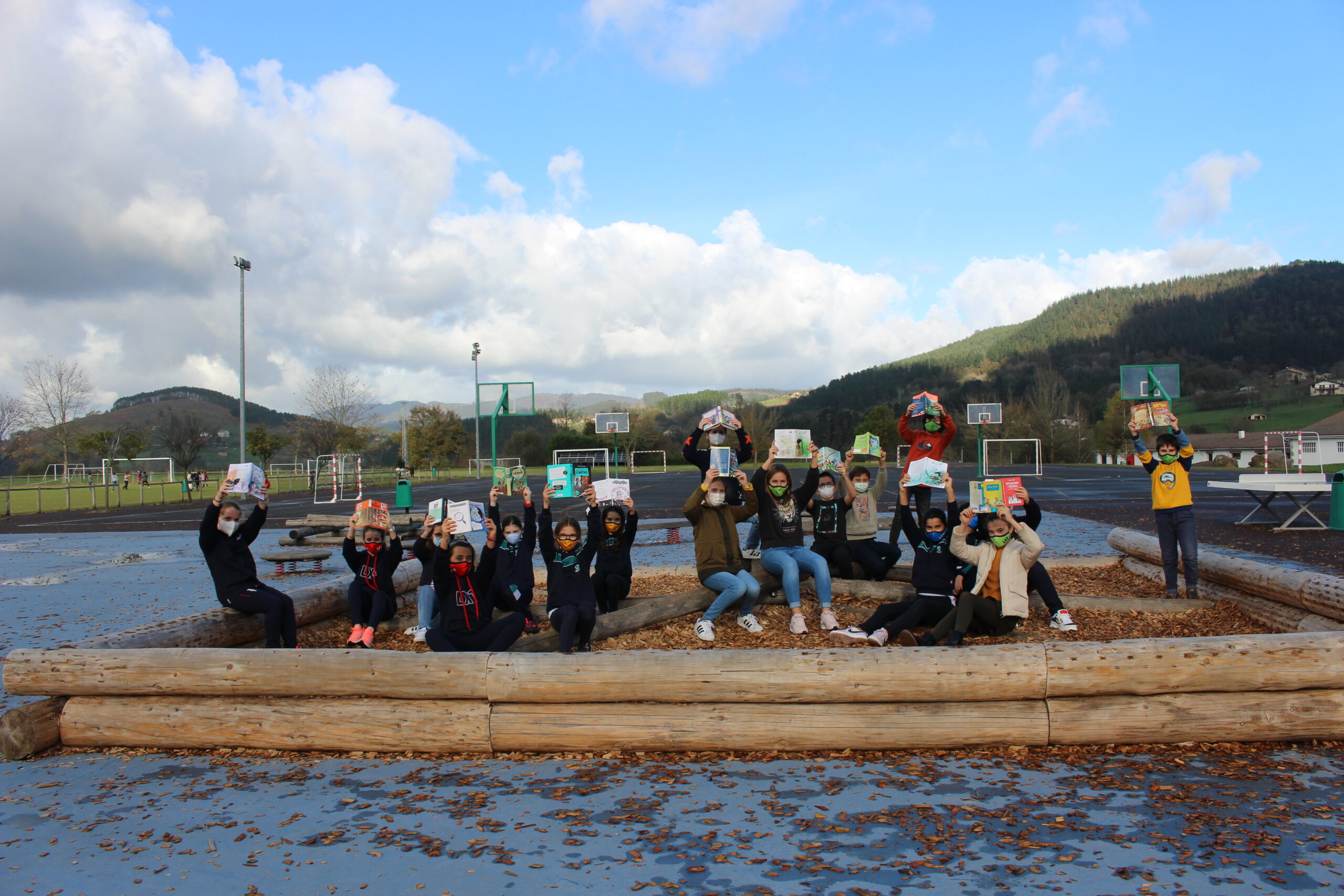
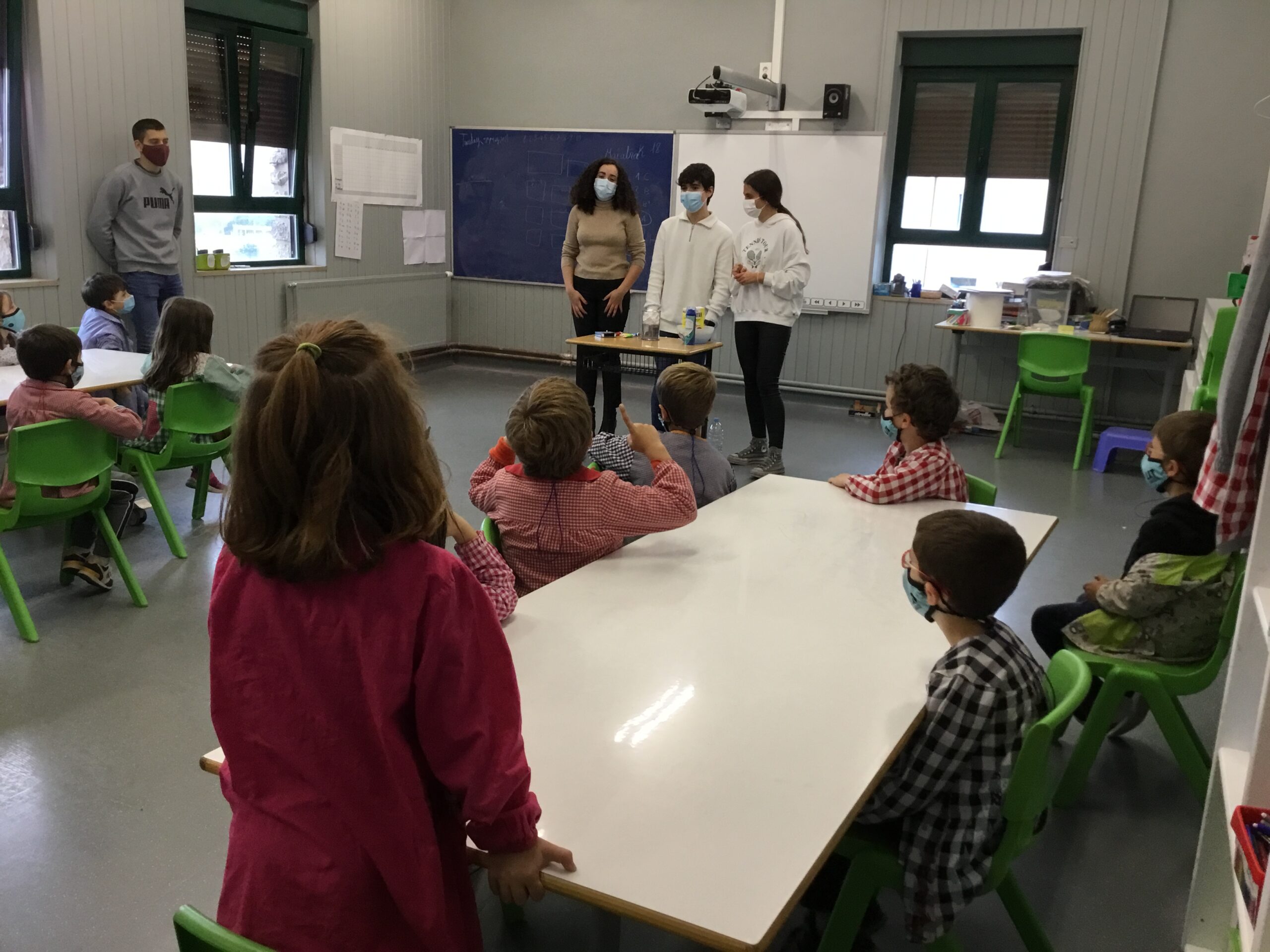
At Lauaxeta we learn together: the younger students with the older ones and the older students with the younger ones. As part of the service-based learning programme, the students get to interact in many ways with students of different ages throughout their school career:
The School Garden provides environmental education for the students, teaching them to respect their surrounding environment and to understand people’s relationship with nature through different learning projects:
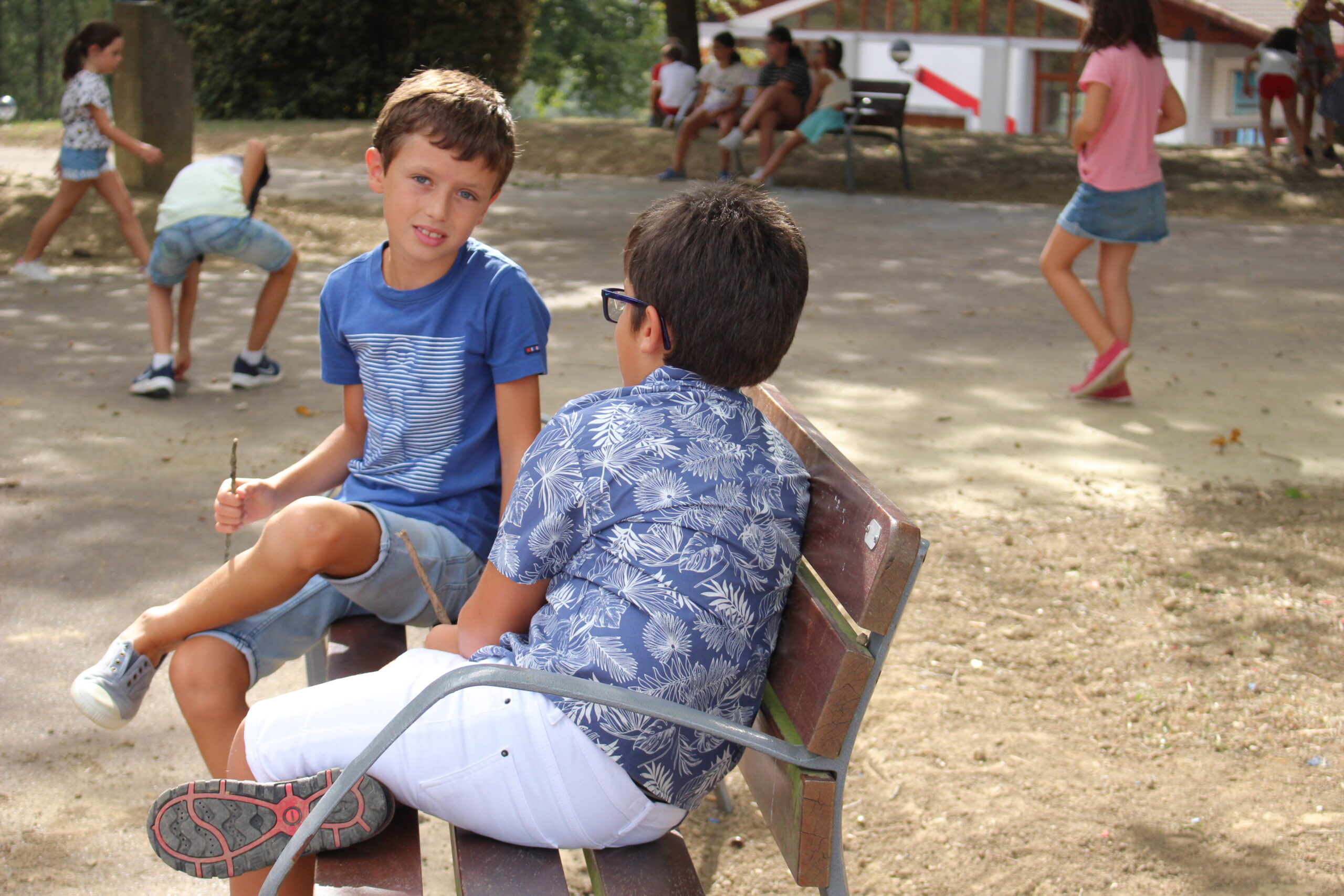
We want our students to be happy, and to achieve that they have to develop skills such as self-esteem, self-regulation, courage and self-confidence, independence and optimism. We help them to develop these skills through:
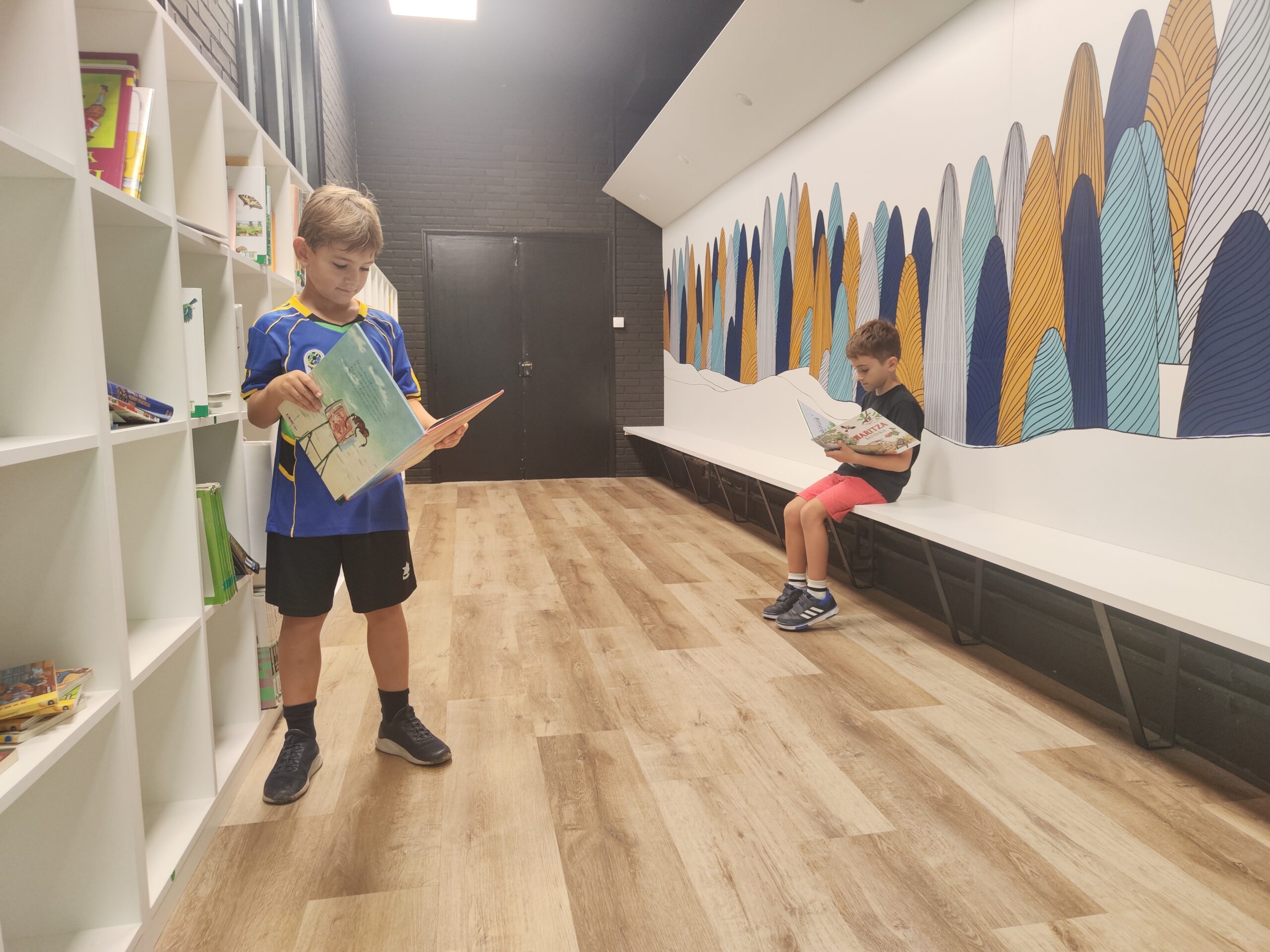
Effectively sharing one’s own ideas and feelings is not an easy task. If is therefore essential for us to offer the students programmes for expressly working on communication skills, and to encourage multilingualism. This is done through
Although we all have an innate creative capacity from early childhood, finding stimulating opportunities in our surrounding environment helps feed our creative and divergent thinking. At the Ikastola, the students have a variety of options for creatively expressing their ideas:
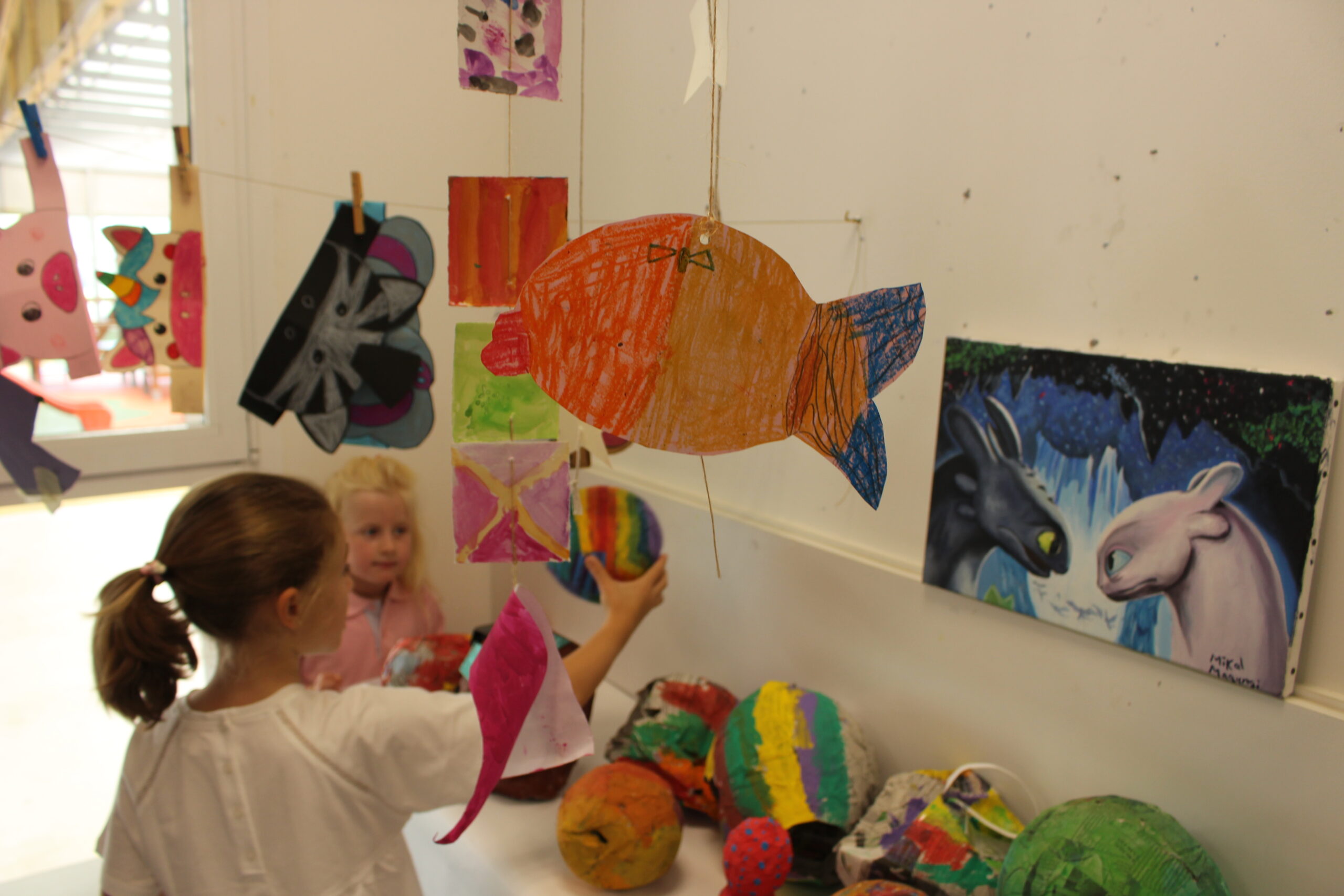
Our teaching models and the progressive changes made to the curriculum, particularly those concerning methodology and assessment, also entail changes to the different scopes of IT and its infrastructure. At this stage, the students will therefore have access to a working tool – an iPad – to better respond to the educational requirements and the innovation projects they develop. This is a personal device and students will therefore have one in addition to the notebooks, pens, pencils and other equipment they habitually use in class.
The students carry out project work, using the scientific approach and technological processes and also applying the UNESCO Sustainable Development Goals. This subject is taught in Basque and it is also taught in English from the 3rd year onwards, for students who already have adequate proficiency in speaking and understanding the Basque language. Main programmes:
